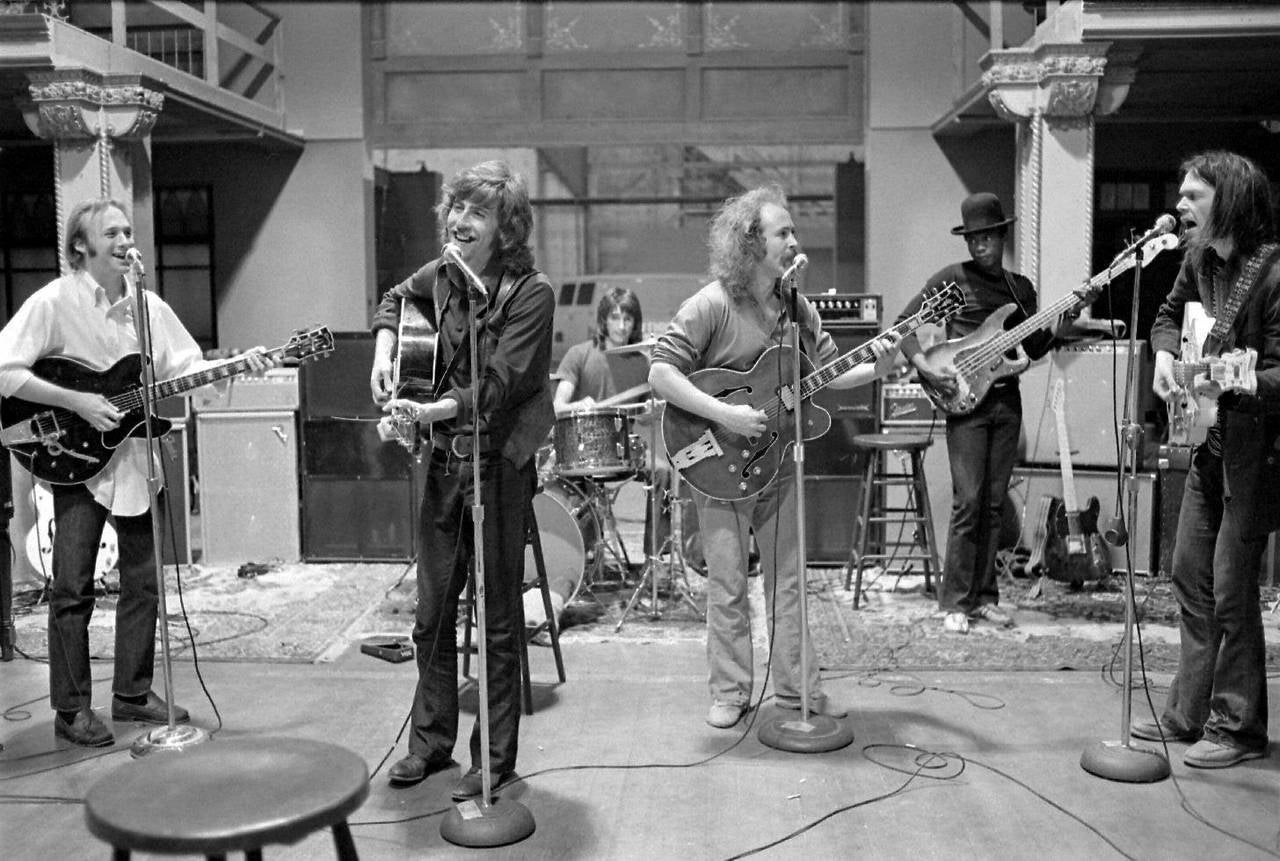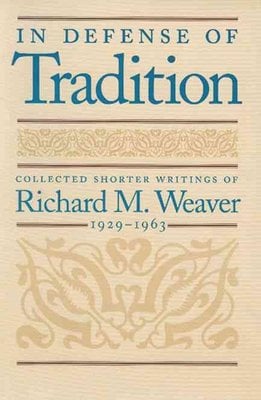In The Ethics of Rhetoric, Weaver evaluates the ability of rhetoric to persuade. Similarly to ancient philosophers, Weaver found that language has the power to move people to do good, to do evil, or to do nothing at all. [57 Weaver's Ethics of Rhetoric, originally published in 1953, has been called his most important statement on the ethical and cultural role of rhetoric. A strong advocate of cultural conservatism, Weaver ( ) argued strongly for the role of liberal studies in the face of what he saw as the encroachments of modern scientific and. Find The Ethics Of Rhetoric by Weaver, Richard M at Biblio. Uncommonly good collectible and rare books from uncommonly good booksellers DOWNLOAD NOW In The Ethics of Rhetoric, Richard M. Weaver evaluates the ethical and cultural role of rhetoric and its reflection on society. Weaver draws upon classical notions of rhetoric in Platos Phaedrus, and he examines the effectiveness and implications of the manipulation of language in the works of Lincoln, Burke, and Milton. In The Ethics of Rhetoric, Richard M. Weaver evaluates the ethical and cultural role of rhetoric and its reflection on society. Weaver draws upon classical notions of rhetoric in Platos Phaedrus, and he examines the effectiveness and implications of the manipulation of language in the works of Lincoln, Burke, and Milton. General Editors: David Bourget (Western Ontario) David Chalmers (ANU, NYU) Area Editors: David Bourget Gwen Bradford Berit Brogaard Margaret Cameron David Chalmers James Chase Rafael De Clercq Ezio Di Nucci Barry Hallen Hans Halvorson Jonathan Ichikawa Michelle Kosch Books Advanced Search Today's Deals New Releases Best Sellers The Globe Mail Best Sellers New York Times Best Sellers Best Books of the Month Children's Books Textbooks Kindle Books Livres en franais Advanced Weaver gives us an ethical ordering of the topics. What is the nature of this ethical ordering? Do you agree with Weaver's order, e. are definitional arguments more ethical (as defined by Weaver) than circumstantial arguments? Does ethics, as it is presented in Language is Sermonic, have a place in rhetoric, or is rhetoric an Weaver's Ethics of Rhetoric, originally published in 1953, has been called his most important statement on the ethical and cultural role of rhetoric. Ethics of Rhetoric Edition 1 Weaver's Ethics of Rhetoric, originally published in 1953, has been called his most important statement on the ethical and cultural role of rhetoric. A strong advocate of cultural conservatism, Weaver ( ) argued strongly for the role of liberal studies in the face of what he saw as the encroachments of. In The Ethics of Rhetoric, Richard Weaver identifies two criteria that define the ethical boundaries of political discourse. First, rhetoric should be grounded in sound logic with arguments high speculation about nature provided by clear thinking and experience. WorldCat Home About WorldCat Help. Search for Library Items Search for Lists Search for Contacts Search for a Library. Create lists, bibliographies and reviews: or Search WorldCat. Find items in libraries near you. Advanced Search Find a Library. Richard Weaver on Rhetoric and Dialectic, p. 3 I began with Ideas Have Consequences because it provides the intellectual backdrop and foundation for Weavers The Ethics of Rhetoric, 3 published in 1953, and because this initial evaluation of Plato and Aristotle must be seen in order to The Ethics of Rhetoric Author: UNKNOWN Subject: The Ethics of Rhetoric Keywords: UNKNOWN The Ethics of Rhetoric Created Date: 3: 27: 50 PM. Weaver's Ethics of Rhetoric, originally published in 1953, has been called his most important statement on the ethical and cultural role of rhetoric. A strong advocate of cultural conservatism, Weaver ( ) argued strongly for the role of The Ethics of Rhetoric The Phaedrus and the Nature of Rhetoric OUR subject begins with the threshold difficulty of defining the question which Platos Phaedrus was meant to answer. Students of this justly celebrated dialogue have been uncertain of its unity of theme, and the tendancy has been to designate it broadly as a discussion of the ethical and the beautiful. In The Ethics of Rhetoric, Richard M. Weaver evaluates the ethical and cultural role of rhetoric and its reflection on society. Weaver draws upon classical notions of rhetoric in Plato's Phaedrus, and he examines the effectiveness and implications of the manipulation of language in the works of Lincoln, Burke, and Milton. The ethics of rhetoric [Richard M Weaver on Amazon. FREE shipping on qualifying offers. Weaver's Ethics of Rhetoric, originally published in 1953, has been called his most important statement on the ethical and cultural role of rhetoric. Weaver's Ethics of Rhetoric, originally published in 1953, has been called his most important statement on the ethical and cultural role of rhetoric. A strong advocate of cultural conservatism, Weaver ( ) argued strongly for the role of li In the second chapter of The Ethics of Rhetoric, Richard Weaver uses the Scopes Monkey Trial (although he refers to it as The Scopes Evolution Trial), to demonstrate the uses of rhetorical and dialectical argument. Editions for The Ethics of Rhetoric: (Paperback published in 1995), (Kindle Edition published in 2017), (Hardcover published in 2011). Weaver's Ethics of Rhetoric, originally published in 1953, has been called his most important statement on the ethical and cultural role of rhetoric. University of South Florida Scholar Commons Graduate Theses and Dissertations Graduate School January 2013 An(other) Rhetoric: Rhetoric, Ethics, and the Initially published in 1953, The Ethics of Rhetoric remains timeless in its evaluation of rhetorics role in society. Weaver (1910 63) was an American scholar, revered twentiethcentury conservative, and professor of English and rhetoric at the University of Chicago. In The Ethics of Rhetoric, Richard M. Weaver evaluates the ethical and cultural role of rhetoric and its reflection on society. Weaver draws upon classical notions of rhetoric in Platos Phaedrus, and he examines the effectiveness and implications of the manipulation of language in the works of Lincoln, Burke, and Milton. Weavers Ethics of Rhetoric, originally published in 1953, has been called his most important statement on the ethical and cultural role of rhetoric. A strong advocate of cultural conservatism, Weaver ( ) argued strongly for the role of liberal studies in the face of what he saw as the encroachments of modern scientific and technological forces in society. 'Ethics of Rhetoric' by Richard M. Weaver is a digital EPUB ebook for direct download to PC, Mac, Notebook, Tablet, iPad, iPhone, Smartphone, eReader but not for Kindle. A DRM capable reader equipment is required. Weaver's Ethics of Rhetoric, originally published in 1953, has been called his most important statement on the ethical and cultural role of rhetoric. A strong advocate of cultural conservatism, Weaver ( ) argued strongly for the role of liberal studies in the face of what he saw as the. In The Ethics of Rhetoric, Richard M. Weaver evaluates the ethical and cultural role of rhetoric and its reflection on society. Weaver draws upon classical notions of rhetoric in Plato's iPhaedrusi, and he examines the effectiveness and implications of the manipulation of language in the works of Lincoln, Burke, and Milton. Weaver, Burke, Plato, Cicero, Quintilian Booth. Before one can discuss the ethics of rhetoric, one must first define what ethical and unethical rhetoric is. No stable link: This is an uncurated book entry from our extended bookshelves, readable online now but without a stable link here. You should not bookmark this page, but you can request that we add this book to our curated collection, which has stable links. Find The Ethics Of Rhetoric by Weaver, Richard M at Biblio. Uncommonly good collectible and rare books from uncommonly good booksellers THE AGRARIAN RHETORIC OF RICHARD M. McKAY STANGLER Solidarity, Rhetoric, and Ethics 144 Sermonic Language and Cultural Solidarity 152 Final Thoughts 156 Chapter 5: Conclusion 167 Rhetoric as Moral Education 170 Agrarian Rhetoric as a Model for Criticism and Education 173. The Ethics of Rhetoric by Richard M. Weaver Weaver's Ethics of Rhetoric, originally published in 1953, has been called his most important statement on the ethical and cultural role of rhetoric. A strong advocate of cultural conservatism, Weaver ( ) argued strongly for the role of liberal studies in the face of what he saw as the. In The Ethics of Rhetoric, Richard M. Weaver evaluates the ethical and cultural role of rhetoric and its reflection on society. Weaver draws upon classical notions of rhetoric in Plato's Phaedrus, and he examines the effectiveness and implications of the manipulation of language in the works of Lincoln, Burke, and Milton. WEAVER ON STANDARDS FOR ETHICAL RHETORIC Richard L. Johannesen 11 Ethics of Rhetoric, p. See also Weaver, To Write the Truth, reprinted in Johannesen, Argument from cause and effect stands. STANDARDS FOR ETHICAL RHETORIC. STANDARDS FOR ETHICAL RHETORIC. STANDARDS FOR ETHICAL RHETORIC. The Ethics of Rhetoric Weaver s Ethics of Rhetoric originally published in has been called his most important statement on the ethical and cultural role of rhetoric A. The first chapter in The Ethics of Rhetoric starts with Weavers analysis of Platos Phaedrus. This reader read this dialog years ago and understood none of it, lacking the patience, experience and desire to grasp what the dialog was really about. The Ethics of Rhetoric in review: Synthesis Superlatives YEARBOOK Class of 1963 2006 Teacher's Pet Wilma Ebbitt 1963 Best School Spirit Robert Buffington 1970 Weaver's Ethics of Rhetoric, originally published in 1953, has been called his most important statement on the ethical and cultural role of rhetoric. A strong advocate of cultural conservatism, Weaver ( ) argued strongly for the role of liberal studies in the face of what he saw as the encroachments of modern scientific and technological forces in society. This essay explores the possibility of grounding an ethic of rhetoric in virtues suggested by the practice of rhetoric itself. For clues regarding rhetorical virtues, it examines the connection between rhetoric and virtues in a variety rhetorical and literary critics. Finally, an initial effort to identify several rhetorical virtues is undertaken following suggestions by Alasdair MacIntyre. Includes all arguments from the nature of the thing. Whether the definition is already a recognized connection, or whether its defined at the moment by orator, or left to be inferred from the aggregate of its species, the argument has a single postulate. Weavers Top Ten These are my ten favorite essays by Richard M. Weaver in which he discusses the relation of rhetoric to dialectic, the cultural role of rhetoric, and the notion of culture, per se. Weaver's Ethics of Rhetoric, initially released in 1953, has been referred to as his most vital assertion at the moral and cultural function of rhetoric. a robust recommend of cultural conservatism, Weaver ( ) argued strongly for the position of liberal experiences within the face of what he observed because the encroachments of recent. WorldCat Home About WorldCat Help. Search for Library Items Search for Lists Search for Contacts Search for a Library. Create lists, bibliographies and reviews: or Search WorldCat. Of all published articles, the following were the most read within the past 12 months Buy The Ethics of Rhetoric 1 by Richard M. Weaver (ISBN: ) from Amazon's Book Store. Everyday low prices and free delivery on eligible orders. THE ETHICS OF RHETORIC (1953) Richard Weaver The Phaedrus and the Nature of Rhetoric Three ways for speech to affect us: 1) move to what is good, 2) what is evil, 3) fail to move at all The lovernonlover debate is a metaphor for whether we should prefer neutral or excitable speech Lysias:.











